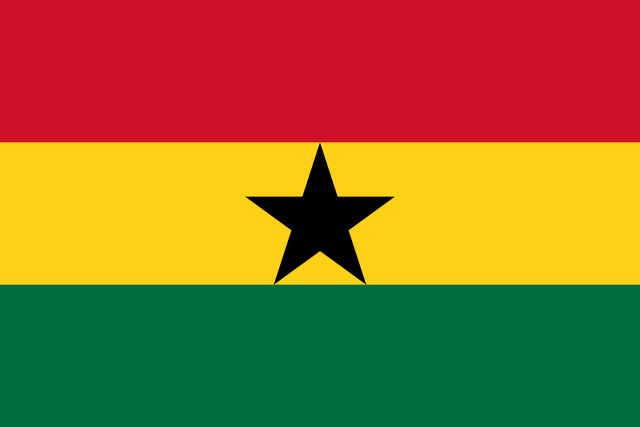Discovering Ghana: A Journey Through Culture, History, and Future Aspirations
- January 13, 2024
- Posted by: consultancytube@gmail.com
- Category: About Ghana

Ghana, a nation nestled along the Gulf of Guinea in West Africa, captivates the world with its vibrant culture, rich history, and ambitious plans for the future. In this exploration, we embark on a journey through the tapestry of Ghana, unraveling the threads that weave its cultural heritage, tracing the footsteps of its storied past, and glimpsing into the promising future that lies ahead.
Cultural Kaleidoscope: Ghana’s Vibrant Traditions
Ghana’s cultural landscape is a kaleidoscope of traditions, ceremonies, and artistry that reflects the deep-rooted heritage of its people. The Adinkra symbols, each carrying a unique meaning, adorn fabrics and spaces, serving as a visual language that transcends generations. From the rhythmic beats of traditional drumming and dance to the colorful festivals that dot the calendar, Ghana’s culture is alive, dynamic, and ever-evolving.
Festivals and Celebrations:
Ghana’s festivals are a testament to its cultural vibrancy. From the exuberant Homowo festival, marking the harvest season, to the elaborate Odwira festival celebrated by the Akan people, each event is a joyful expression of community spirit and ancestral reverence. The traditional Damba festival of the Dagombas and the vibrant Panafest celebrating Pan-African heritage showcase the diversity within Ghana’s cultural tapestry.
Traditional Clothing:
The colorful Kente cloth, with its intricate patterns and symbolic meanings, is a visual representation of Ghana’s cultural identity. Worn proudly during ceremonies and special occasions, the Kente cloth embodies the artistry and craftsmanship passed down through generations.
Warm Hospitality:
Ghanaian hospitality is renowned worldwide. The warmth of the people and their eagerness to share their culture with visitors create an atmosphere of inclusivity and friendliness. Whether savoring local dishes like jollof rice and fufu, or engaging in lively conversations, visitors are embraced as honored guests.
Echoes of the Past: Tracing Ghana’s Storied History
Ghana’s history is a narrative of resilience, cultural exchange, and the pursuit of freedom. As the first African nation to gain independence from colonial rule in 1957, Ghana holds a special place in the hearts of those passionate about Pan-Africanism and self-determination.
The Ashanti Empire:
The Ashanti Empire, with its capital in Kumasi, was a powerful kingdom that thrived in the 18th and 19th centuries. Known for its sophisticated political and social structures, the Ashanti Empire played a crucial role in the trans-Saharan trade routes, contributing to the cultural and economic development of the region.
Colonial Heritage:
The remnants of colonial rule are visible in the architecture and institutions that dot the country. Cape Coast Castle and Elmina Castle, both UNESCO World Heritage Sites, serve as poignant reminders of the transatlantic slave trade and the impact of colonialism on Ghana’s history.
Independence and Pan-African Leadership:
Ghana’s journey to independence was led by Kwame Nkrumah, a visionary statesman who advocated for a united Africa. Nkrumah’s legacy lives on, and Ghana continues to play a pivotal role in Pan-African initiatives, hosting events like the All-Africa Games and contributing to the African Union’s efforts towards continental integration.
Ghana’s Vision for Tomorrow: Ambitious Plans for Development
As Ghana strides confidently into the future, the nation is fueled by ambitious plans for development and progress. Vision 2020, now extended to Vision 2030, outlines the country’s commitment to achieving economic stability, infrastructural development, and social well-being.
Economic Diversification:
Ghana’s economy, traditionally reliant on agriculture and mining, is diversifying to embrace technology, manufacturing, and services. Initiatives such as the “One District, One Factory” program aim to stimulate industrial growth across the country, creating jobs and fostering economic resilience.
Infrastructure Development:
Investments in infrastructure are reshaping Ghana’s landscape. The expansion of roads, the development of modernized ports and airports, and the implementation of smart city initiatives in Accra and Kumasi demonstrate the commitment to creating a conducive environment for business and urban living.
Sustainable Development:
Ghana is actively pursuing sustainable development goals, recognizing the importance of environmental conservation and social equity. From renewable energy projects to afforestation initiatives, the country is aligning its development with a commitment to preserving its natural beauty and fostering inclusive growth.
Education and Innovation:
Ghana’s vision for the future places a strong emphasis on education and innovation. The establishment of technology hubs, investment in research and development, and the promotion of STEM education are key components of the nation’s strategy to position itself as a hub for innovation in Africa.
Conclusion: A Nation Unfolding Its Destiny
As we traverse the cultural landscapes, historical milestones, and future aspirations of Ghana, it becomes evident that this West African nation is a dynamic tapestry, woven with threads of resilience, cultural pride, and a forward-looking vision. Ghana invites the world to join in its journey – to experience the rhythm of its festivals, to learn from the echoes of its past, and to contribute to the unfolding chapters of its promising future.
In the spirit of unity, progress, and cultural exchange, Ghana stands as a beacon, inviting global partners to be a part of its story. As the nation pursues its ambitious plans for development, it does so with an open heart, welcoming all who seek to explore, understand, and contribute to the shared destiny of this extraordinary land.
